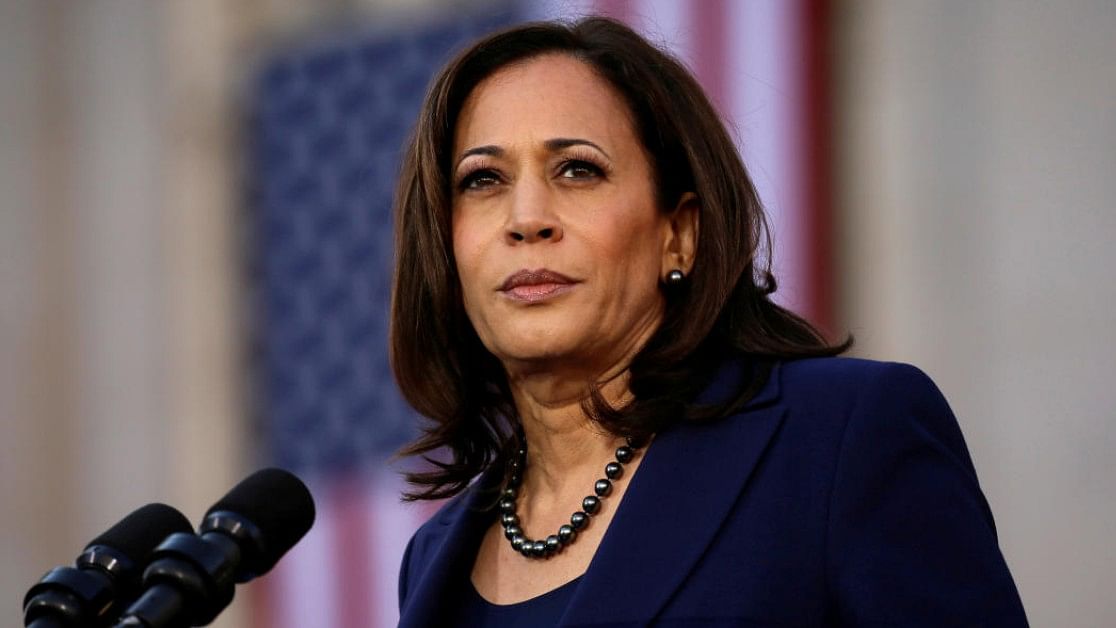
Harris, a 55-year-old US senator from California, was chosen by Democratic presidential candidate Joe Biden as his running mate on Tuesday, making history as the first Black woman and Asian-American on a major presidential ticket.
Credit: Reuters File Photo
Vice President Kamala Harris has improved her party's standing among Black voters since President Joe Biden left the presidential race, but she still significantly trails Biden's 2020 share of that vital Democratic constituency, according to a New York Times/Siena College poll of Black likely voters.
Nearly 8 in 10 Black voters nationwide said they would vote for Harris, the poll found, a marked increase from the 74 per cent of Black voters who said they would support Biden before he dropped out of the race in July.
But Biden won 90 per cent of Black voters to capture the White House by narrow margins in 2020, and the drop-off for Harris, if it holds, is large enough to imperil her chances of winning key battleground states.
Democrats have been banking on a tidal wave of support from Black voters, drawn by the chance to elect the first Black female president and by revulsion toward former President Donald Trump, whose questioning of Harris' racial identity, comments on "Black jobs" and demonizing of Haitian immigrants pushed his long history of racist attacks to the forefront of the campaign.
Harris is on track to win an overwhelming majority of Black voters, but Trump appears to be chipping away broadly at a long-standing Democratic advantage.
His campaign has relied on targeted advertising and sporadic outreach events to court African American voters -- especially Black men -- and has seen an uptick in support. About 15% of Black likely voters said they planned to vote for him, according to the new poll, a 6-point increase from four years ago.
Much of the erosion in support for Harris is driven by a growing belief that Democrats have failed to deliver on their promises to Black voters, the poll showed.
Some 40 per cent of African American voters younger than 30 said the Republican Party was more likely to follow through on its campaign commitments than Democrats were.
The vice president's support from Black women is strong, about 83%, while 12% of Black women said they would back Trump, with 5% undecided.
But the slip from Biden's 2020 numbers among Black men is striking; 70 per cent said they would vote for Harris in November, down from 85 per cent in 2020. This is in line with the gender gap more broadly, but relatively new among Black voters.
Harris' problems with African American voters rest on the same issue that her struggles with other constituencies do: the economy.
Nearly three-quarters of Black voters rated the economy fair or poor, and the economy along with abortion were rated their most pressing concerns. More than 7 in 10 Black voters said they had cut back on groceries because of cost.